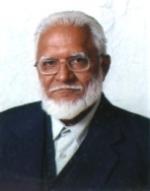5 Octobre 2010 09:30 | Institución Javeriana - Auditori
Barcelona 2010 - Intervention of Muhammad Khalid MASUD

First of all, I would like to thank the Community of Sant’Egidia for the honour of participating in this august dialogue colloquium and giving me the opportunity to share my thoughts in this International meeting of Peace. I feel humble in this gathering of giants but listening to them it gives me confidence to speak because these giants are indeed angels of peace.
This meeting describes peace as need of the hour and calls for living together in a time of crisis. I want to talk about this crisis because this crisis is overwhelming. This crisis is affecting our dialogue as well as our common destiny. It will be presumptuous on my part to go into details and therefore I will speak in the manner of bullet points.
It goes without saying that peace is the common destiny of the whole mankind but even though we believe in it our dialogues toward peace are not making progress. These dialogues, especially between Christians and Muslims are often straddling and mostly struggling
In my view this is because we do not fully comprehend the crisis. It is not a crisis that can be understood in terms of politics, economics or theology. It is in fact a crisis of epistemology. Modern life, in fact modernity has challenged the very basic categories of our thinking, our tools of perception, our methods of reasoning and our worldviews. We have been accustomed to rely on theology as a framework for knowledge and perception. Realities of life have changed theological frameworks and have seriously impacting our dialogue efforts.
Dialogue today requires a new epistemology. Modern thought speaks in terms of positivism, rights, autonomy of the self, atheism and secularism and these categories are still not part of our theologies; rather they pose a challenge to theological epistemology. Positivism regards morality subjective, the idea of right militates against social customs and religious ethics; autonomy of the self relies on freedom that challenge traditional and religious values, and atheism and secularism deny any place for religion in public and political matters.
Regarding dialogue, we still speak in terms of Muslims, Christians and Jews whereas in several societies people no longer define themselves in those terms. These identifications objectify religions in essentialised terms and exclude a number of people from the dialogue. On the other hand, a number of Muslims perceive the West as Christian and Western societies often refer to the Qur’an if they want to describe Muslims. Such essentialization is impacting the dialogue.
Modernity itself is also in crisis. We are still speaking in terms of empire, security, and war. Globalism, human rights, and nuclear technology are being used for hegemonial politics. The universality of the concept of the rule of law is compromised with the concerns of security and national interest in international law. The third world is still struggling with the idea of nation-state while new world order has produced a giant of international corporatism that does not believe in borders and in the sovereignty of state.
In this environment dialogue requires a new theological framework that revisits both the theological framework and the project of modernity. The framework of conversion is no longer in vogue in dialogue. But still, dialogue does not mean compromising your faith. In fact, dialogue has to be based in faith, because faith gives the strength to stand up for a cause. We can move together only if we recognise and respect our differences and particularities. We cannot effectively define common good and common goals unless we first understand each other with our differences and particularities. Having said this, we must include in the dialogue those people who do not agree with the conventional theological classifications of faith.
To conclude, I must stress that present crisis has allowed the extremists, fundamentalists and terrorists to highjack and exploit both the theological framework and the project of modernity. Dialogue between Muslims and Christians can move ahead only if we challenge the politics of power and hegemony regardless whether it uses Islam, Christianity or Secularism and modernity as its framework.